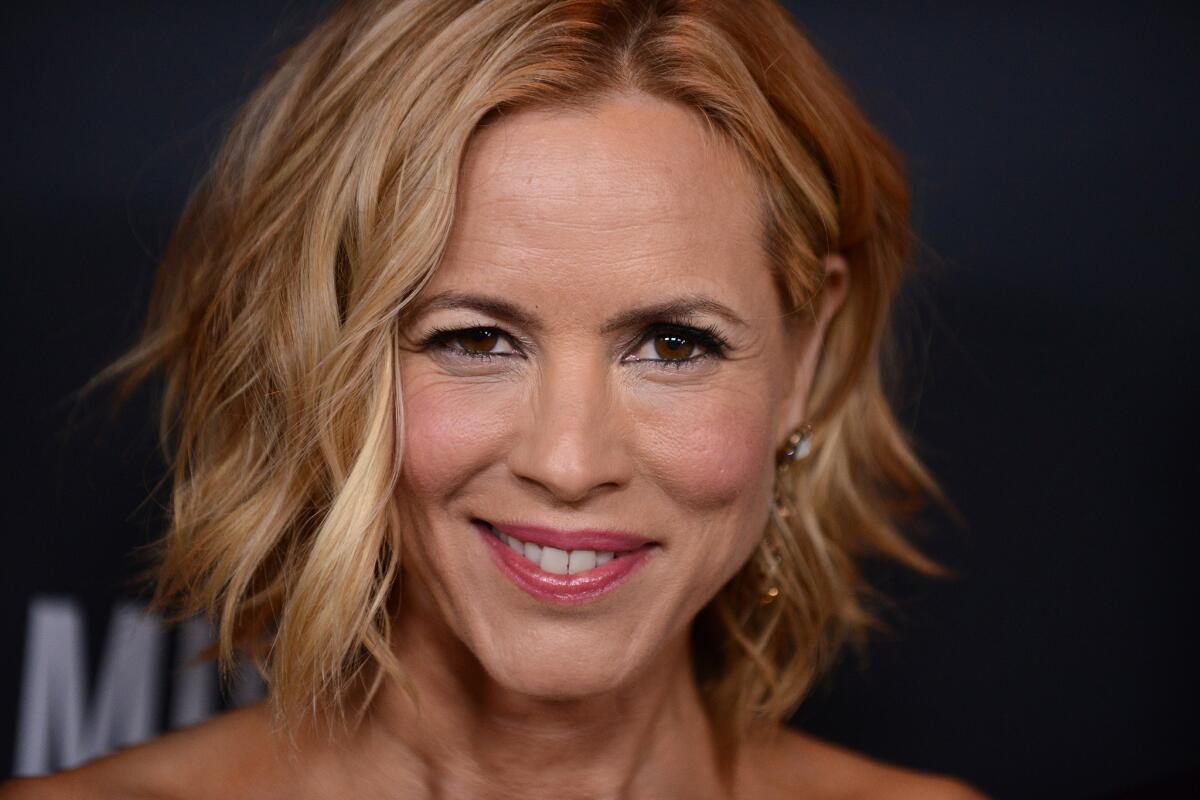Tom Daley and Maria Bello show there’s more than one way to be out

British Olympian Tom Daley and actress Maria Bello have made headlines in recent days by coming out, Bello in a Modern Love piece for the New York Times and Daley in a YouTube video to fans. After a string of notable celebrities opening up about their sexuality — including CNN anchor Anderson Cooper and actor Zachary Quinto — Bello and Daley’s candor isn’t revolutionary. What’s striking is that they came out as nothing, or, as Bello put it, “whatever.”
In their respective statements, neither Bello nor Daley put a label on their sexuality, emphasizing falling in love over gender. It was about meeting the right person — like “falling in love with her best friend,” as Bello wrote.
“Whomever I love, however I love them, whether they sleep in my bed or not, or whether I do homework with them or share a child with them, ‘love is love,’ ” she wrote. “And I love our modern family. Maybe, in the end, a modern family is just a more honest family.”
YEAR IN REVIEW: Ted Rall’s five best cartoons
Bello argued for love over labels, a sexuality that’s just as messy as life is. This is a refreshing step forward not just in our understanding of sexuality but in Hollywood’s relationship to LGBT people, where coming out is becoming more common.
J. Bryan Lowder at Slate points out that both Daley and Bello have been labeled by the media as “bisexual,” and they aren’t the first celebrities to be hastily thrown into a box. The same thing happened to Frank Ocean after he came out last year. In a heartbreaking letter posted on Tumblr, the hip-hop artist discussed his first love — with another man — without ever using the words “gay” or “bisexual.”
NPR’s Ann Powers argued there was a profound power in eschewing identity.
“In his note, instead of embracing an identity, Ocean shared a set of memories and explored complex feelings, just as he does in his songs,” Powers said of the singer’s letter. “Unlike the standard coming-out gesture ... Ocean’s presented sexuality as something that arises within particular circumstances, defined by shifting desire and individual encounters rather than solidifying as an identity. In the age-old debate about whether sexuality emerges as something we are or through something we want or do, Ocean carefully rested on the side of feeling and deed.”
Powers argues that statements like Ocean’s “contribute to the greater visibility of LGBTQ people” without the need to identify where you fall on the spectrum. Shortly after Ocean came out, indie actor Ezra Miller (and co-star of “The Perks of Being a Wallflower”) confounded expectations by labeling as “queer” during an interview with Out magazine, instead of coming out as “gay.”
Miller said: “I have a lot of really wonderful friends who are of very different sexes and genders. I am very much in love with no one in particular. I’ve been trying to figure out relationships, you know?”
Rather than presenting sexuality as static and simple, Miller’s statement showed how complex our relationships to other people are — the beauty in ambiguity. Rather than showing there’s only one way to be honest, he dared to “[make] coming out confusing.” The admission also allowed Miller to keep some parts of his evolving sexuality to himself.
However, there’s a drawback in not being specific about your identity. In the aforementioned Slate essay, Lowder argues that the insistence on non-labeling isn’t just “post-gay laissez-faire individualism.” He finds it “disconcertingly apolitical.”
“For better or for worse, the very much unfinished LGBTQ civil rights project involves a certain amount of PR, and every PR campaign needs some buzzwords,” Lowder writes. “Naively imagining that you can remove yourself from that paradigm because gay or bi doesn’t quite fit is a highly privileged act — especially when, as far as I can tell, the only worthwhile thing that can come from a celebrity’s coming out is some small contribution to queer visibility in communities where queer people may not be easily seen beyond the page or screen.”
At the end of the day, coming out is still a “big deal,” as Lowder reminds us, and we must remember that the tenor of their honesty matters. But what matters most is letting people define their own coming-out journeys rather than “sawing down any edges of [anyone’s] story.” Discussing Daley’s coming out, BuzzFeed’s Saeed Jones reminds us that his life doesn’t need to “fit our purposes.”
“Let’s ask ourselves what’s more important: having Daley as the handsome gay icon we have so desperately been waiting for,” Jones argues, “or celebrating that, one story at a time, we are being reminded that there are an infinite number of ways to be ourselves?”
ALSO:
Amazon’s drones: What happens if my cat catches one?
Settling the Katy Perry controversy: ‘Yellowface’ is not beautiful
Angered by church sex abuse, readers turn against Cardinal Mahony
Nico Lang is a contributor at Thought Catalog and co-editor of the “BOYS” anthology series. Follow Nico on Twitter @Nico_Lang.
More to Read
Start your day right
Sign up for Essential California for news, features and recommendations from the L.A. Times and beyond in your inbox six days a week.
You may occasionally receive promotional content from the Los Angeles Times.






